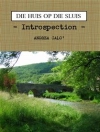Are animals capable of wonder? Can they be said to possess language and reason? What can animals teach us about how to live well? How can they help us to see the limitations of human civilization? Is it possible to draw firm distinctions between humans and animals? And how might asking and answering questions like these lead us to rethink human-animal relations in an age of catastrophic ecological destruction?
In this accessible and engaging book, Matthew Calarco explores key issues in the philosophy of animals and their significance for our contemporary world. He leads readers on a spirited tour of historical and contemporary philosophy, ranging from Plato to Donna Haraway and from the Cynics to the Jains. Calarco unearths surprising insights about animals from a number of philosophers while also underscoring ways in which the philosophical tradition has failed to challenge the dogma of human-centeredness. Along the way, he indicates how mainstream Western philosophy is both complemented and challenged by non-Western traditions and noncanonical theories about animals. Throughout, Calarco uses examples from contemporary culture to illustrate how philosophical theories about animals are deeply relevant to our lives today. The Boundaries of Human Nature shows readers why philosophy can help transform not just the way we think about animals but also how we interact with them.
表中的内容
Introduction
1. Plato’s Pigs
2. Aristotle’s Wonderful Animals
3. Cynicism’s Dogs
4. Jainism’s Birds
5. Plutarch’s Grunter
6. Descartes’s Beast-Machine
7. Kant’s Elephants
8. Bentham’s Suffering Animal
9. Nietzsche’s Overhuman Animal
10. Derrida’s Cat
11. Adams’s Absent Referent
12. Plumwood’s Crocodile
13. Haraway’s Companion Species
Notes
Index
关于作者
Matthew Calarco is professor of philosophy at California State University, Fullerton. His books include
Zoographies: The Question of the Animal from Heidegger to Derrida (Columbia, 2008) and
Beyond the Anthropological Difference (2020).












